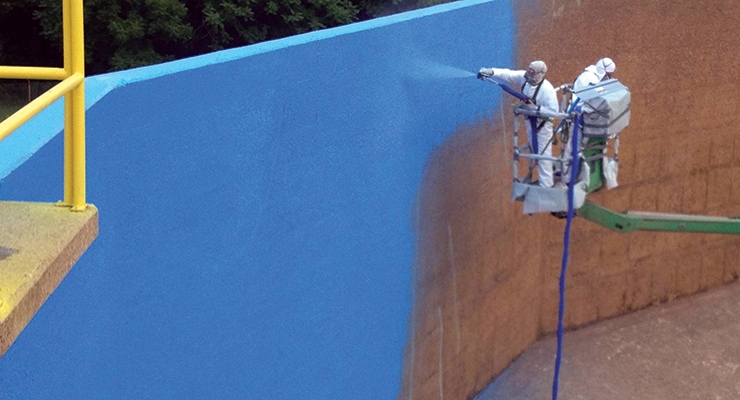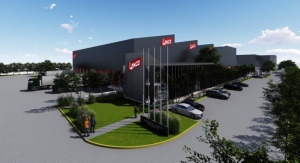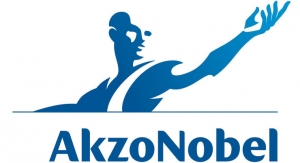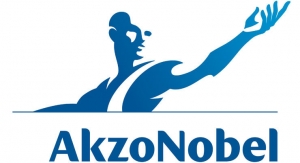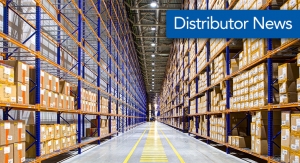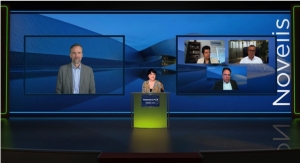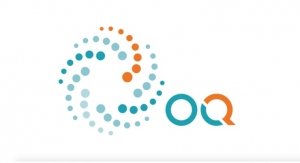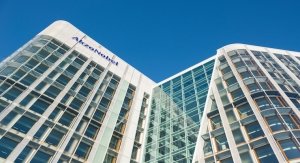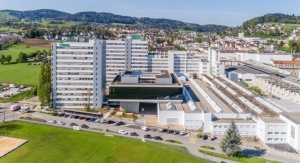Charles W. Thurston, Latin America Correspondent02.13.17
Kansas City-based Versaflex has expanded its footprint in South America through a co-marketing agreement with São Paulo-based Renner Coatings that will result in a new polyurea coating line brand, RenFlex, now being prepared for distribution.
While the largest market for the joint venture’s polyurea coatings will be Brazil, Renner’s existing manufacturing capacity in Chile will add that country as a top target. Bolivia, Peru and other countries in the region are expected to be added soon, according to Fernando Costa, the business manager for Versaflex South America.
“Without a doubt, the polyurea market in South America will grow. One of the reasons for this growth is the maturing nature of the markets in countries like Brazil, Chile and Peru, where the technology is no longer seen merely as a concrete waterproofing agente. In these markets it is also now seen as a coating for protecting metals, for offshore platform use, for mining and for other applications,” said Costa.
“We are selling more despite the clouds of crisis circling here, as industries are seeking solutions that are more durable, more efficient and more effective. The quest for a reduction in cost is not resulting in cuts in maintenance, rather in a reduction of the amount of maintenance that is necessary, which is one result of the polyurea technology,” Costa added. “Another reason for growth in the market, and especially in Brazil, is the new norm ABNT 16545:2016 that defines the uses for polyurea and expected results.”
“And last but not least, what will also make polyurea technology grow is the number of Polyurea University qualified and certified applicators on the South American continent that has increased dramatically. Over the past two years, the number qualified has risen from only four to 22. With the VersaFlex & Renner partnership, in addition to technical support and local stock, the qualification of applicators will be intensified, with local training sessions in Brazil and Chile, which will be given by our director of education and development, Mr. Dudley Primeaux II, the world’s largest expert on polyurea technology,” Costa explained.
“The mining market in Chile is undoubtedly one of the most important for us in South America. I will go further and say that the mining market of South America is one of the most important global markets for polyurea technology. However, we will also focus on the oil and gas, chemical, agriculture, pulp and paper industries, along with basic infrastructure such as water and wastewater not only in Chile and Brazil, but also in Bolivia, where we are close to partnering for local distribution, and in other South American countries where we hope to establish partnerships soon,” noted Costa.
Brazil in particular has high import taxes for paints and coatings, which encourages many international companies to manufacture locally. “VersaFlex is not closing the door to any opportunity, but at the moment we still think it is premature to go ahead with a plan to expand our production in South America,” Costa concluded.
While the largest market for the joint venture’s polyurea coatings will be Brazil, Renner’s existing manufacturing capacity in Chile will add that country as a top target. Bolivia, Peru and other countries in the region are expected to be added soon, according to Fernando Costa, the business manager for Versaflex South America.
“Without a doubt, the polyurea market in South America will grow. One of the reasons for this growth is the maturing nature of the markets in countries like Brazil, Chile and Peru, where the technology is no longer seen merely as a concrete waterproofing agente. In these markets it is also now seen as a coating for protecting metals, for offshore platform use, for mining and for other applications,” said Costa.
“We are selling more despite the clouds of crisis circling here, as industries are seeking solutions that are more durable, more efficient and more effective. The quest for a reduction in cost is not resulting in cuts in maintenance, rather in a reduction of the amount of maintenance that is necessary, which is one result of the polyurea technology,” Costa added. “Another reason for growth in the market, and especially in Brazil, is the new norm ABNT 16545:2016 that defines the uses for polyurea and expected results.”
“And last but not least, what will also make polyurea technology grow is the number of Polyurea University qualified and certified applicators on the South American continent that has increased dramatically. Over the past two years, the number qualified has risen from only four to 22. With the VersaFlex & Renner partnership, in addition to technical support and local stock, the qualification of applicators will be intensified, with local training sessions in Brazil and Chile, which will be given by our director of education and development, Mr. Dudley Primeaux II, the world’s largest expert on polyurea technology,” Costa explained.
“The mining market in Chile is undoubtedly one of the most important for us in South America. I will go further and say that the mining market of South America is one of the most important global markets for polyurea technology. However, we will also focus on the oil and gas, chemical, agriculture, pulp and paper industries, along with basic infrastructure such as water and wastewater not only in Chile and Brazil, but also in Bolivia, where we are close to partnering for local distribution, and in other South American countries where we hope to establish partnerships soon,” noted Costa.
Brazil in particular has high import taxes for paints and coatings, which encourages many international companies to manufacture locally. “VersaFlex is not closing the door to any opportunity, but at the moment we still think it is premature to go ahead with a plan to expand our production in South America,” Costa concluded.

